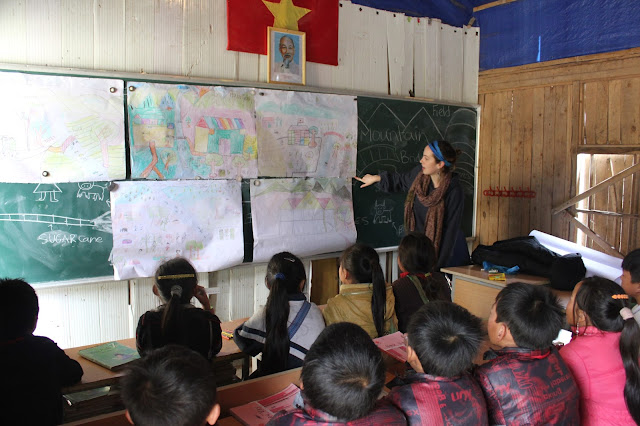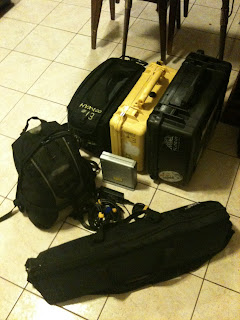Can you tell us a little about what you did on the CIDA funded project with Capilano?
I was involved in year 2 (2004) of the project at a time where training in the villages was just beginning. I took part in the first train-the-trainer experiences, first village training experiences in areas such as English communication, food safety, cultural protection, waste and collection and product development.
As with any new venture, relationships were just beginning to form as well. From the many different levels of government, local and regional NGOs, with Hanoi Open University and in the villages themselves – it was all new.
Very exciting times.
How did - what you did on the projects - inspire you?
The project was inspiring for many reasons. It was the first time I had ever worked on an international development project, first time I had found myself in a rural, very economically disadvantaged part of the developing world and first time I had ever officially taught on a topic with learners staring me in the face. All three were incredibly intoxicating.
To this day I still wear an anklet sewn and gifted to me by a young girl in Ta Phin. I am shocked it has survived eight years around my leg, but I look at it everyday as a reminder of how lucky I am to be who I am, living in one of the most advantageous, democratic places on the globe. And everyday, I take that inspiration and put it to use creating value.
If only that young villager knew the power of the gift she gave me.
Can you tell us about the last time you may have included the CapU CIDA project in conversation with a colleague?
I talk about this project all the time. Most recently I have been involved with the Vancouver Chapter of Acumen Fund. We meet once a month, gathering in the time-honoured tradition of a “discussion salon” to talk and debate over great food the many facets, both positive and negative, of international development.
What would you say to other students that would consider going on these projects?
"Run. Jump. Throw yourself off a mountain
if it means you get to take part in a project like this.
It will change your life. Guaranteed!"
As a past volunteer, turned tourism professional what would you say to potential funders who are thinking about funding such a project (i.e. involving students to volunteer as changemakers) -- or if you rather, Cap U who might be thinking about enhancing its international development programs?
International development projects are not without their perils. There are incredible pitfalls, most of which I will avoid in detail here. But generally speaking, as long as the project shares value along the stakeholder spectrum, deeply involves local communities and decision-makers as leaders, spawns community-directed independence, is genuine and accountable, the project is likely worth a deeper look in regards to funding.
Utilizing student talent in a project, engaging young passion and championing emerging changemakers – now that is amazing stuff. If a student can finish their education with a greater awareness of what it will take to create positive change from their future actions, that institution has done its job. In a world where education takes on many forms, the traditional university needs to take a more active role in developing innovation, creativity and social progress – core drivers of a changemaker.
As a person working in tourism / development where does tourism fit into making the world a better place?
I don’t necessarily classify myself as a tourism professional, more an experiential entrepreneur constantly in search of opportunities to create shared value. But having worked in the industry and extensively travelled, I
do have a deep love for tourism.
At its simplest, tourism brings people together. And it is the interactive aspect that has always excited me so much. But from a big picture I suppose it is the hope, from greater cultural interactions comes greater understanding, empathy and togetherness. Unfortunately, I don’t think this is always the case.
The tourism industry has a lot of work to do in innovating shared value amongst the communities, social structures, environments and cultures it operates within. And it needs to be done without the consumer sacrificing much of what they have come to expect, but rather continuously adding value to the proposition.
What the industry needs is brilliant social entrepreneurs who are willing to turn the industry on its head.
Most profound learning experience you gained from the communities?
Be ready to ditch your well thought through, meticulously organized, “bullet-proof” plan for something that works in the moment.
What's next for Jordan Kallman?
I live in the next! I have two very cool entrepreneurial ventures on the go that I am incredibly excited about. I live for that adventure right now.
Last words?
“Columbus wasn't looking for America, my man, but that seemed to work out perfectly, didn't it?” – Vince Vaughn, Old School
To get in touch with Jordan you can follow him on twitter @JordanKallman. 















